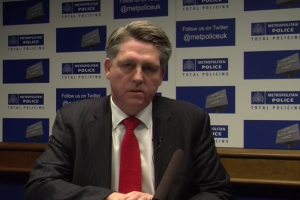India's 'frugal' innovation has lessons for the UK: Nesta
Nesta’s report -- Our Frugal Future: Lessons from India's Innovation System -- found that in 2011 India produced over twice as many scientific publications it produced in 2001, despite investment in R&D remaining at less than 1% of GDP.
India now has significant pockets of world-class excellence in physics, chemistry, materials science, engineering, space and civil nuclear research, the report noted.
"India has distinct advantages in frugal innovation. But it's a model that can be applied anywhere,” said Kirsten Bound, report co-author and lead policy advisor at Nesta.
“Frugal innovation” is a response to the limitations in resources, whether financial, material or institutional, and using a range of methods to turn these constraints into an advantage, according to Nesta.
“Whether it's about providing heart surgery at a fraction of the cost, or building cheap, green 21st century transport systems, frugal approaches are as relevant in Birmingham and Manchester as in Bangalore and Mumbai,” Bound added.
The author stressed that the UK needs to engage with fast-growing economies including India for inspiration.
More like this
The report assessed the policies, institutions and industries that are driving research and innovation in India. With its emphasis on frugal solutions to beat social challenges, combined with explosive population growth of an aspirational middle class, India is an increasingly fertile environment for frugal innovation.
One example of such frugal innovation is a “path-breaking model of cardiac care in Bangalore” by an Indian doctor, Devi Shetty. Shetty’s heart surgery costs £1300 as against the NHS’s £11,000.
The report drew on over 130 interviews with policy makers, entrepreneurs and scientists across six Indian cities.
It called for frugal innovation to become a strategic focus for collaboration between the two countries: including more ambitious partnerships in sustainable energy, the use of challenge prizes to stimulate new innovation collaborations and stronger links in higher education.
In a climate of lacklustre growth, public austerity, environmental pressures, and competition from emerging markets, frugal innovation should not be overlooked as a route to innovation success in the UK, the report noted.
"Partnerships for innovation have huge potential benefits for both the UK and India,” said Mark Sinclair, first secretary in the British High Commission in Delhi.
The report’s insights into emerging hotspots will guide the UK Science and Innovation Network in supporting collaborations between the UK and India, he concluded.
Most read
- 2015: Full list of Indian States, capitals and their Chief Ministers
- Indian cabinet 2014: Full list of Ministers and their portfolios in the Modi government
- Recipe: Misal Pav – how to make missal masala, usal and tarri
- South Indian actress Trisha Krishnan’s father passes away
- Bollywood hearthrob Shah Rukh Khan is in London attending Asian Awards
- Review: Southall Travel (Also Travel Trolley and Fly Sharp)
- Mahatma Gandhi statue erected in London’s Parliament Square
- Pics: Amitabh and Aishwarya Rai Bachchan dazzle in Chennai for Kalyan Jewellers
- Pics: Trisha Krishnan rocks Tarun Tahiliani saree for Lion film’s audio launch in Hyderabad
- Amitabh Bachchan honoured with Padma Vibhushan
India News Bulletin by email
Desi Events
Featured Stories
More Lead Stories
- Review: Southall Travel (Also Travel Trolley and Fly Sharp)
- Pics: Amitabh and Aishwarya Rai Bachchan dazzle in Chennai for Kalyan Jewellers
- Amitabh Bachchan honoured with Padma Vibhushan
- Long stay Indian visitors, students, professionals to pay for NHS access
- Mahatma Gandhi statue erected in London’s Parliament Square






















